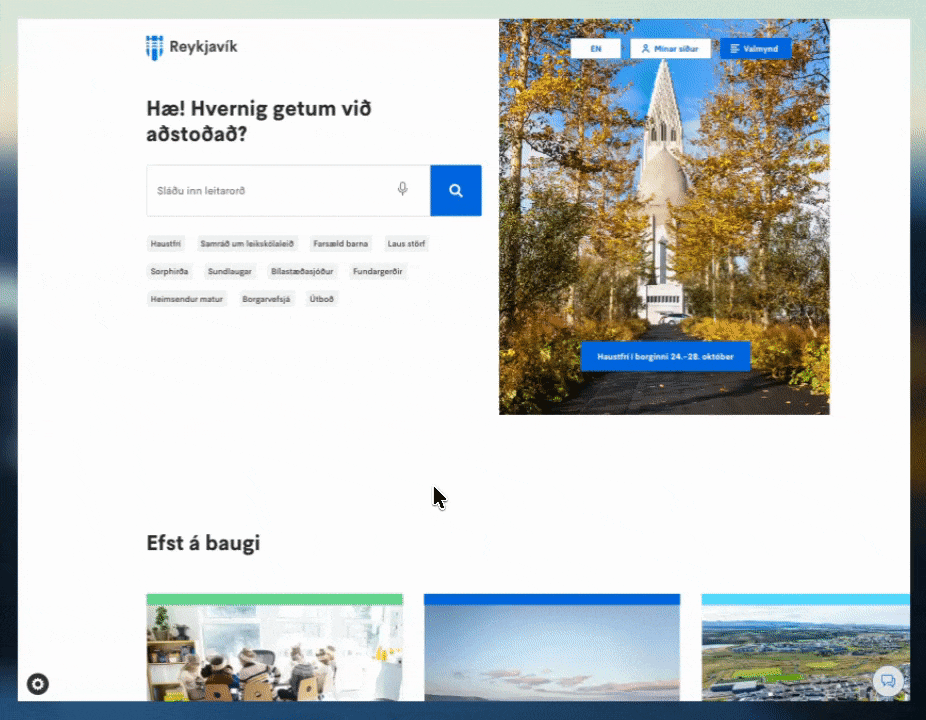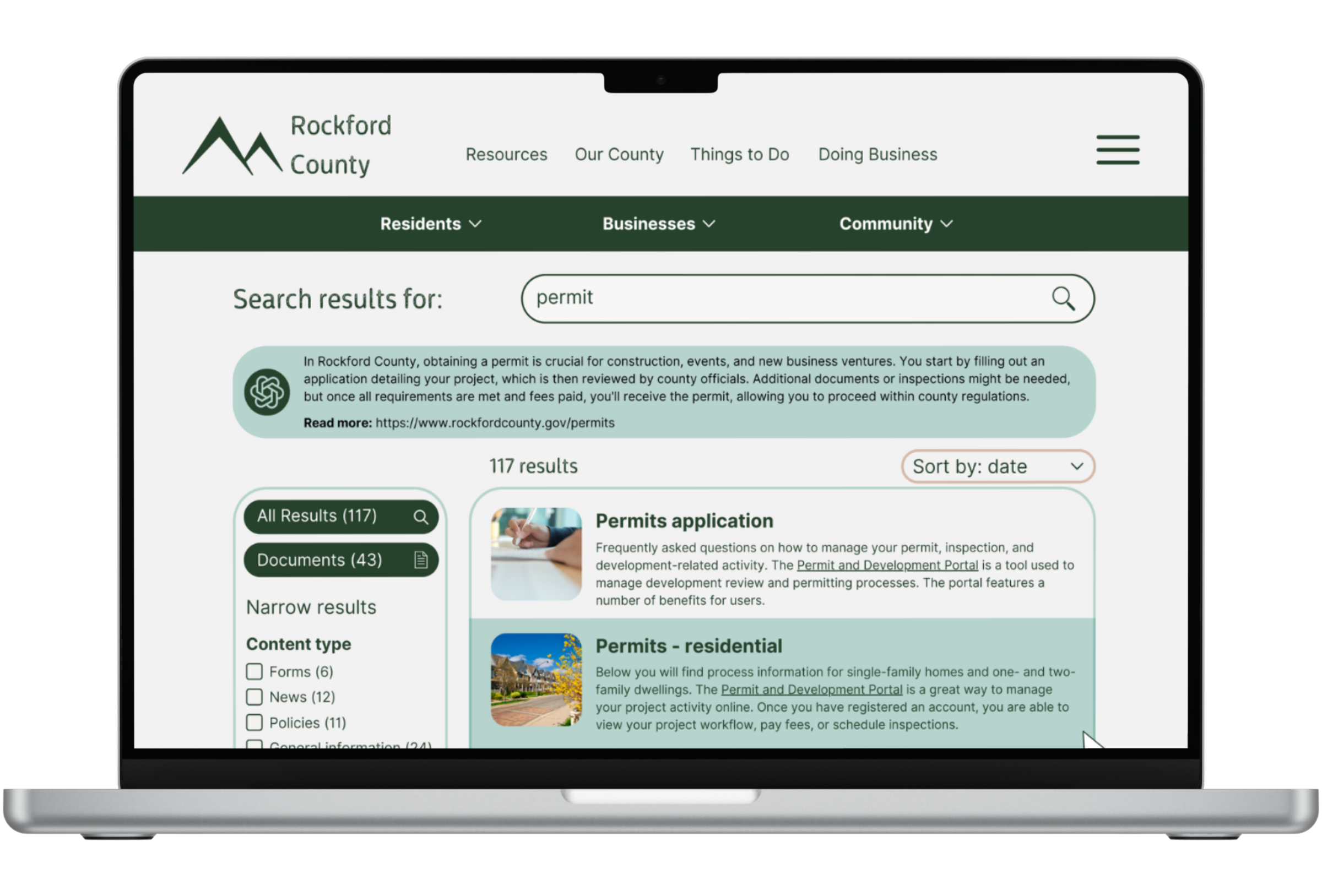City of Reykjavík Redefines Public Service Experience with AI Chat and AI Summaries
Situation
Citizens frequently contacted Reykjavík’s support team for simple information, creating repetitive workloads and slowing access to essential public services.
Solution
Reykjavík implemented Cludo Search with AI Chat and AI Summaries to automate responses and deliver instant, accurate answers directly on the website.
Impact
Human-handled chats dropped by 46%, and citizens now find answers faster, reducing clicks and improving satisfaction across digital services.
For the City of Reykjavík, serving citizens efficiently and transparently is at the heart of every digital initiative. With thousands of daily visitors relying on their website to access information, pay bills, and find public services, the municipality’s digital team knew that an effective search experience was essential.
Over the years, they had already experimented with live chat support — a service that had been running successfully for nearly two decades. However, their human agents were increasingly answering the same questions again and again, often about opening hours, permits, or contact details. The team wanted to both ease the pressure on support agents and make information instantly accessible to citizens.
“We had a very experienced team of agents,” says Hreinn Hreinsson, Web Manager at the City of Reykjavík. “But they were answering the same questions repeatedly. We wanted to see if AI could take over some of that workload, especially for simpler queries.”
Digitalizing the online experience
In 2024, Reykjavík integrated Cludo Search, AI Summaries, and AI Chat — combining traditional search precision with AI-powered assistance.
The setup was designed to be seamless: citizens could chat with the AI or, if needed, bypass it to talk to a human agent. This “harmless” integration, as Hreinn calls it, allowed the team to introduce AI gradually, maintaining trust while expanding automation.
“It was an easy step for us to take,” explains Hreinn. “Users could still reach a live agent at any time — but many found their answers instantly through the AI chat.”
AI Summaries, launched shortly after, provided concise, auto-generated answers directly on the search results page. Instead of clicking through multiple links, citizens could now see opening hours, instructions, or service details right away.
“When people search for simple things like opening hours, giving them a short summary right there makes a big difference,” says Ásta Jónsdóttir, Project Manager. “They don’t need to click anything — they get what they need instantly.”

Cludo's AI Summary technology answers in perfect Icelandic and it comes with full human control of answers given.
Meeting city residents where they’re at
The results have been immediate and measurable. Within the first seven months of launching AI Chat, the number of human-handled conversations dropped from 9,000 to 4,900, while AI handled over 5,000 chats — taking over more than 46% of total support volume.
Meanwhile, the introduction of AI Summaries significantly changed how citizens interacted with search. The click-through rate on the search results page dropped from 60% to 47% overnight, indicating that users were finding their answers directly within the summaries — faster, simpler, and with fewer clicks.
“It’s a great impact,” says Hreinn. “People are getting their answers right away.”
Encouraged by these results, the team is now conducting user research to further understand citizen behavior and optimize AI interactions even more.
“We started cautiously, not promoting the new features too loudly,” says Ásta. “But seeing these results in under a year is very exciting. We’re committed to making this experience even better for our citizens.”
Looking Ahead
For Reykjavík, the collaboration with Cludo has proven that AI can enhance — not replace — human interaction in public digital services. By combining intuitive search, trustworthy summaries, and a responsive AI assistant, the municipality has taken a major step toward a more efficient, accessible, and citizen-centered digital experience.
“It’s about meeting people where they are,” concludes Ásta. “Helping them find what they need, quickly and confidently — that’s what good public service should be.”
.jpg?width=252&height=74&name=IS%20-%20reykjavik-logo%20(1).jpg)

